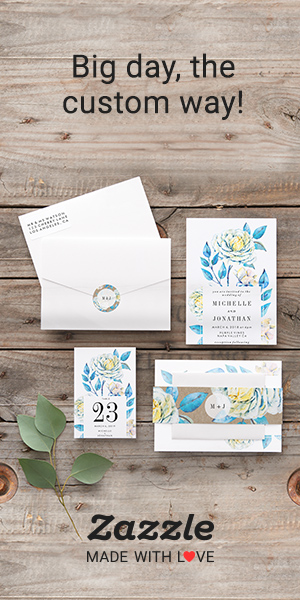Marriage brings many exciting changes, but one question that often lingers is whether or not to change your name. This age-old tradition has deep cultural roots, but as society evolves, so too do the customs surrounding it. While some embrace the tradition of taking their partner’s name, others opt to keep their birth names, hyphenate, or even create a new name altogether. Whatever you choose, changing your name after marriage is a big decision.
The decision to change your name after marriage is deeply personal. It is not as simple as choosing one option over the other, as this decision can carry emotional, practical, and even legal consequences. So, should you do it? Let’s dive into the pros, cons, and various name change options to help you make the best decision for your situation.

Why You Might Want to Change Your Name After Marriage
1. Traditional Values
One of the primary reasons people choose to change their name after marriage is to honor tradition. In many cultures, it is customary for one spouse, often the wife, to take the husband’s last name. This choice can represent unity and reflect shared values or cultural expectations.
For those who value tradition and feel connected to the symbolism of sharing a last name, changing your name can be a natural part of marriage. If it’s important for you to create a sense of family unity with your spouse, particularly if children are in the future, you might feel strongly about adopting one family name.
2. Shared Identity and Family Bond
Changing your name can foster a sense of togetherness and shared identity. For some couples, having the same last name symbolizes the commitment they’ve made to their relationship and future together. It can be a way of publicly signaling that you’re a team, both in personal life and in the eyes of society.
Additionally, if you plan to have children, sharing a family name can simplify things when it comes to official documents, school, and other practical aspects of family life.
3. Making Life Simpler
Let’s face it, having the same last name as your spouse can make things easier in certain situations. Booking flights, filling out paperwork, and other bureaucratic processes may feel more straightforward when you share a surname. It can also reduce the potential for confusion if people expect you to have the same last name as your spouse.
In the long term, many couples find that having one family name helps smooth out issues involving healthcare, insurance policies, financial institutions, and even social media profiles. While this isn’t always a compelling reason on its own, it’s something worth considering.

Why You Might Not Want to Change Your Name After Marriage
1. Professional Identity
One of the biggest reasons people choose to keep their birth name after marriage is their professional identity. You may have built a career, reputation, and brand around your current name. Changing it could disrupt that, especially in industries where name recognition is vital, like business, media, or academia.
If you’ve published articles, earned degrees, or become known under your current name, switching to a new one could create confusion or dilute your professional presence. Maintaining your name could preserve your hard-earned identity and reputation in your professional field.
2. Emotional Connection to Your Name
Names carry emotional weight. They’re a part of your identity, your history, and your lineage. If you feel deeply connected to your birth name, changing it after marriage might feel like letting go of a significant part of who you are. This is particularly true for people who have strong family ties or those who see their name as a symbol of their independence.
Additionally, if you’ve worked hard to establish your sense of self as an individual, you might hesitate to adopt a new name, which could be perceived as altering that identity.
3. Feminist Perspective
For some, changing their last name after marriage might feel like a relic of patriarchal traditions where women were expected to leave their family identity behind and “belong” to their husband. While this might not be the reality for everyone, the historical connotation still exists for those who believe in challenging gender norms.
If you identify as a feminist or strongly value gender equality, keeping your last name can be a way to break from tradition and maintain your personal and family history. It’s also an option for couples who prefer a more modern or egalitarian approach to marriage.

Name Change Alternatives
If you’re feeling torn between these two camps, don’t worry—you’re not alone. Many couples today are opting for creative solutions to the name change dilemma:
1. Hyphenation
Hyphenating your last name is a popular compromise. By combining both last names, you and your spouse can honor both families while still forging a unified identity. For example, if your last name is Smith and your partner’s last name is Johnson, you could become Smith-Johnson or Johnson-Smith.
While hyphenation allows for both names to be included, it can sometimes create logistical headaches, especially when it comes to legal documents, email addresses, or forms that don’t allow for long names. It’s important to consider these challenges.
2. Combining Last Names
Another option is to merge your last names into a completely new one. For example, if you’re Smith and Johnson, you could become “Smonson” or “Joth.” This is a more unconventional approach but can be a fun way to create a shared identity.
3. Keeping Your Name, But Using Your Spouse’s Socially
Some people decide to keep their birth name legally but use their spouse’s name in social or informal settings. This could be a good middle ground for those who want to maintain their professional identity while still aligning with tradition or family unity in personal life.

The Legal Process of Changing Your Name
If you do decide to change your name, be prepared for a fair amount of paperwork. The name change process varies by country and region, but generally, you’ll need to update the following:
- Social Security (or equivalent identification)
- Passport
- Driver’s license
- Bank accounts and credit cards
- Utility bills and leases
- Insurance policies
Remember to check local laws and procedures, as they can differ depending on your location.
Final Thoughts
Ultimately, whether or not to change your name after marriage is a highly personal decision. There’s no right or wrong answer—it’s all about what feels best for you and your relationship. Some couples find joy in sharing a name, while others value maintaining their individual identities. It’s important to have open, honest conversations with your partner and weigh the emotional, professional, and practical implications before making a decision.
Whichever path you choose, make sure it’s a choice that reflects your values, your relationship, and your sense of self. Marriage is about love, partnership, and building a life together—and that’s something that no name can change.
Save this post for later!









Leave a Reply